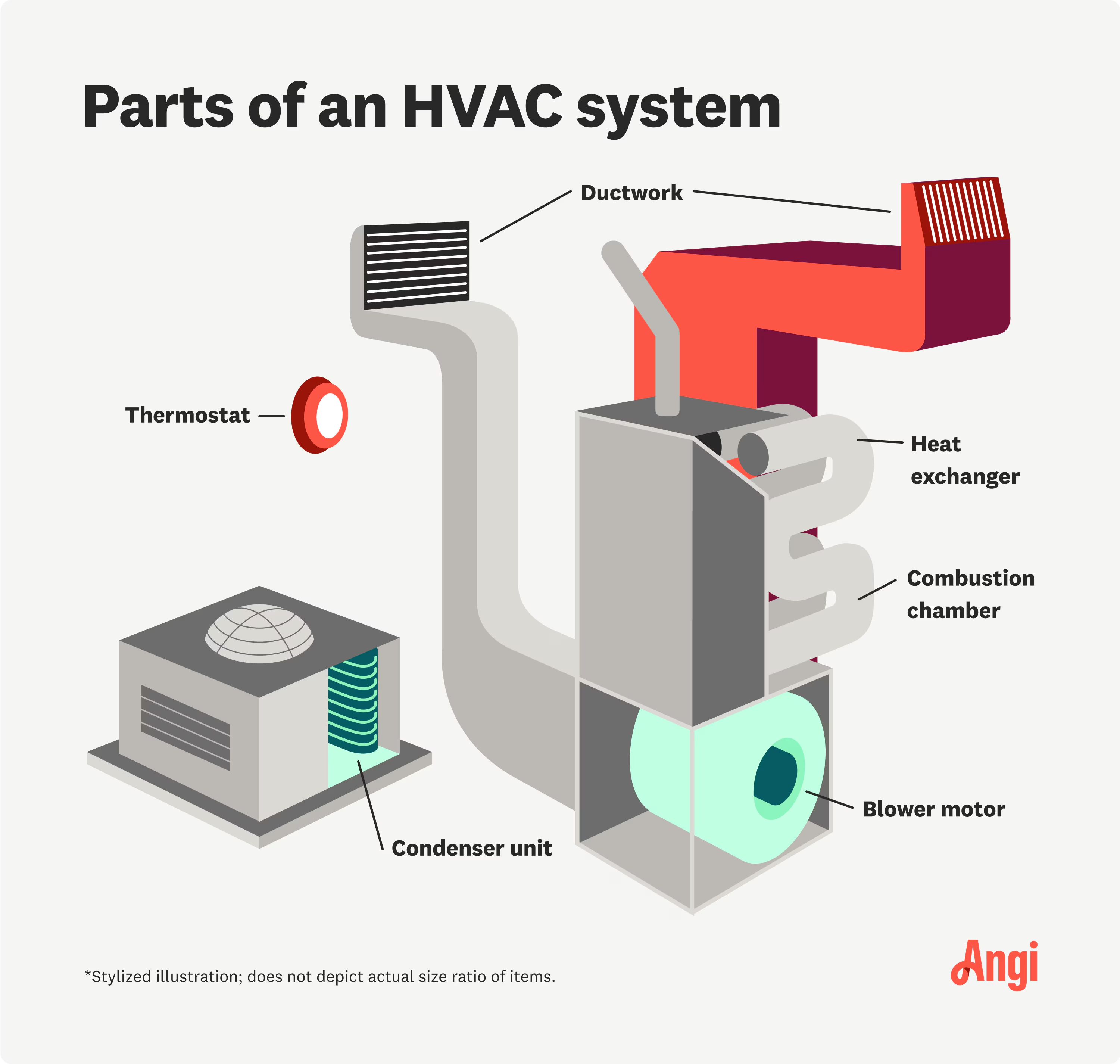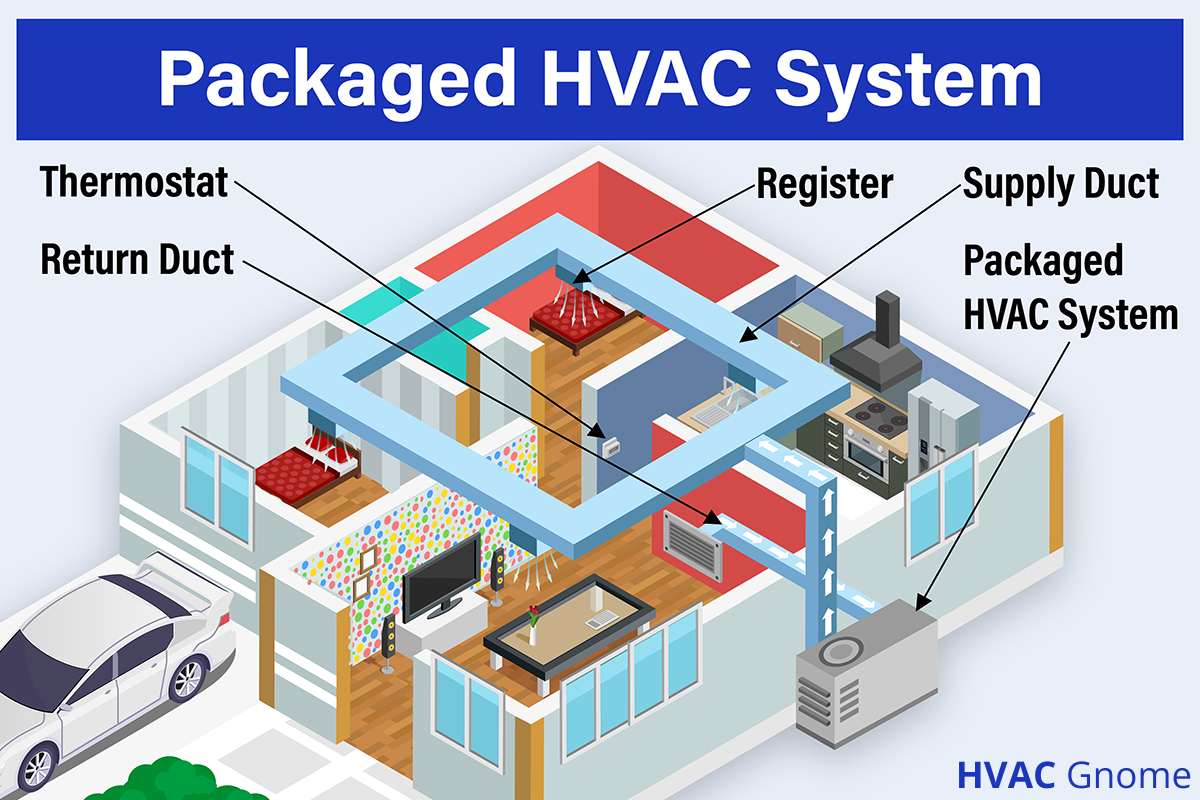Trusted Air Conditioning Contractor for Your Air Conditioning Requirements
Wiki Article
A Comprehensive Check Out Cooling And Heating Solutions and Their Impact on Power Effectiveness and Cost Savings
With technical developments like smart thermostats and high-efficiency parts, the potential for maximizing system efficiency is large. As we explore the elaborate partnership in between Heating and cooling systems and functional prices, including the change towards environmentally pleasant alternatives, the inquiry arises: how can these approaches be properly applied to make the most of both eco-friendly and economic advantages?
Importance of Heating And Cooling Systems
cooling and heating systems are a vital element of modern structures, playing an important role in preserving comfortable and healthy and balanced indoor settings. These systems, incorporating ventilation, home heating, and air conditioning, are necessary for managing temperature level, moisture, and air high quality, thereby ensuring the health of occupants. Reliable HVAC systems add dramatically to creating an optimal indoor environment, which is vital for both business and domestic rooms.In industrial buildings, heating and cooling systems are essential to giving a risk-free and effective environment. By controlling indoor environment problems, these systems assist stop the development of mold and the spread of air-borne impurities, therefore safeguarding the health and wellness of staff members and clients. Additionally, in property settings, a/c systems boost living conditions by using regular thermal comfort and improving indoor air quality, which is important for total wellness.
Moreover, the layout and upkeep of heating and cooling systems have a direct effect on energy usage and functional costs. Correctly created and kept systems can dramatically lower energy use, leading to decreased energy bills and a smaller sized carbon footprint. The efficiency of these systems hence plays a vital function in promoting sustainability and energy conservation within buildings, highlighting their value in the modern-day architectural landscape.
Advances in HVAC Innovation
Innovation in HVAC modern technology is reinventing the method buildings handle interior climates, introducing a new period of performance and control. Recent advancements have concentrated on optimizing energy consumption while boosting user convenience. One remarkable development is the assimilation of smart thermostats, which make use of expert system to learn tenancy patterns and change temperature levels accordingly, minimizing unneeded energy usage.Variable Refrigerant Circulation (VRF) systems represent one more significant leap onward. These systems permit specific temperature level control in different zones of a building, enhancing convenience and reducing power waste. VRF modern technology is especially beneficial for large business spaces, offering flexibility and scalability.
Additionally, the development of Net of Things (IoT) tools has changed HVAC systems right into interconnected networks capable of real-time data collection and evaluation. This connection makes it possible for anticipating upkeep, ensuring systems run at peak efficiency and reducing unanticipated downtime.
Moreover, innovations in materials and design, such as the use of high-efficiency coils and compressors, have improved total system efficiency - Heating Contractor. The fostering of eco friendly cooling agents likewise underscores the sector's dedication to sustainability
These technical innovations are crucial in decreasing More hints functional expenses and environmental effect, establishing brand-new requirements for developing climate administration.
A/c Upkeep and Performance
Making certain ideal performance of HVAC systems expands past technical improvements; it likewise hinges on effective maintenance methods. Normal upkeep is important for sustaining efficiency, minimizing power intake, and extending the life span of a/c systems. The key objective is to make certain that all elements work at their peak potential, thus lessening power wastefulness and keeping consistent indoor comfort degrees.Routine maintenance tasks, such as cleaning or changing air filters, checking cooling agent degrees, and inspecting ductwork for leakages, are vital for preventing unnecessary pressure on the system. Filthy or clogged up filters can block air flow, triggering the system to work more challenging and take in even more energy. Furthermore, poor refrigerant levels can minimize cooling down effectiveness, bring about greater operational expenses.
Additionally, routine inspections by qualified specialists can identify prospective concerns prior to they rise into costly repair work or system failures. These examinations frequently include inspecting electrical links, calibrating thermostats, and making sure the overall honesty of the cooling and heating system. By dealing with small problems early, house owners and businesses can prevent unforeseen malfunctions and improve energy effectiveness.
Cost-efficient HVAC Solutions
For those looking to get the most out of their home heating, air flow, and air conditioning systems without damaging the bank, discovering affordable a/c options can make a substantial difference. One prompt action is to buy programmable thermostats, which permit customers to establish specific temperatures for different times of the day, optimizing energy use and decreasing unneeded intake. By automating temperature level changes, home owners can achieve substantial cost savings on power bills.Regular upkeep is one more vital part of cost-effective cooling and heating management. Ensuring that filters are cleansed or changed frequently, ductwork is secured, and units are serviced by professionals can prevent costly repairs and boost system longevity. Precautionary upkeep not only maintains system effectiveness but additionally aids in preventing unanticipated breakdowns that can cause pricey emergency repair services.
Additionally, retrofitting existing recommended you read systems with energy-efficient elements, such as variable speed electric motors or high-efficiency compressors, can be a sensible financial investment. These upgrades improve operational effectiveness, reduce power use, and can often be implemented at a fraction of the price of a complete system substitute.
Environmental Impact Decrease
Minimizing the ecological impact of Heating and cooling systems is critical in today's search of sustainable living. A/c systems are significant contributors to energy usage, accounting for virtually 40% of energy usage in industrial structures.
Technological advancements in HVAC design and operation, consisting of the integration of smart thermostats and energy-efficient heatpump, are critical in reducing carbon impacts. These innovations enable for maximized power usage, lessening wastefulness and enhancing overall system efficiency. Additionally, embracing regular maintenance practices ensures a/c systems operate at peak performance, additional curtailing unneeded energy intake.
In addition, making use of environmentally pleasant refrigerants is vital, as standard cooling agents, like CFCs and chiller air conditioner HCFCs, have been terminated as a result of their ozone-depleting residential or commercial properties. Modern choices, such as hydrofluoroolefins (HFOs), deal minimized ecological threats, straightening with worldwide ecological protocols. By welcoming these sustainable methods, a/c solutions can play a transformative function in decreasing environmental impacts, promoting energy effectiveness, and cultivating a more lasting future.
Verdict

Furthermore, the style and maintenance of Heating and cooling systems have a straight impact on energy usage and functional expenses. Routine maintenance is important for maintaining performance, decreasing power consumption, and expanding the life period of HVAC systems. Cooling and heating systems are considerable contributors to power consumption, accounting for nearly 40% of power use in business structures. Additionally, taking on routine maintenance methods makes sure Cooling and heating systems run at peak effectiveness, more stopping unnecessary energy intake.
The change to environmentally pleasant HVAC systems additionally lowers operational costs and advertises sustainability. (Heating Contractor)
Report this wiki page